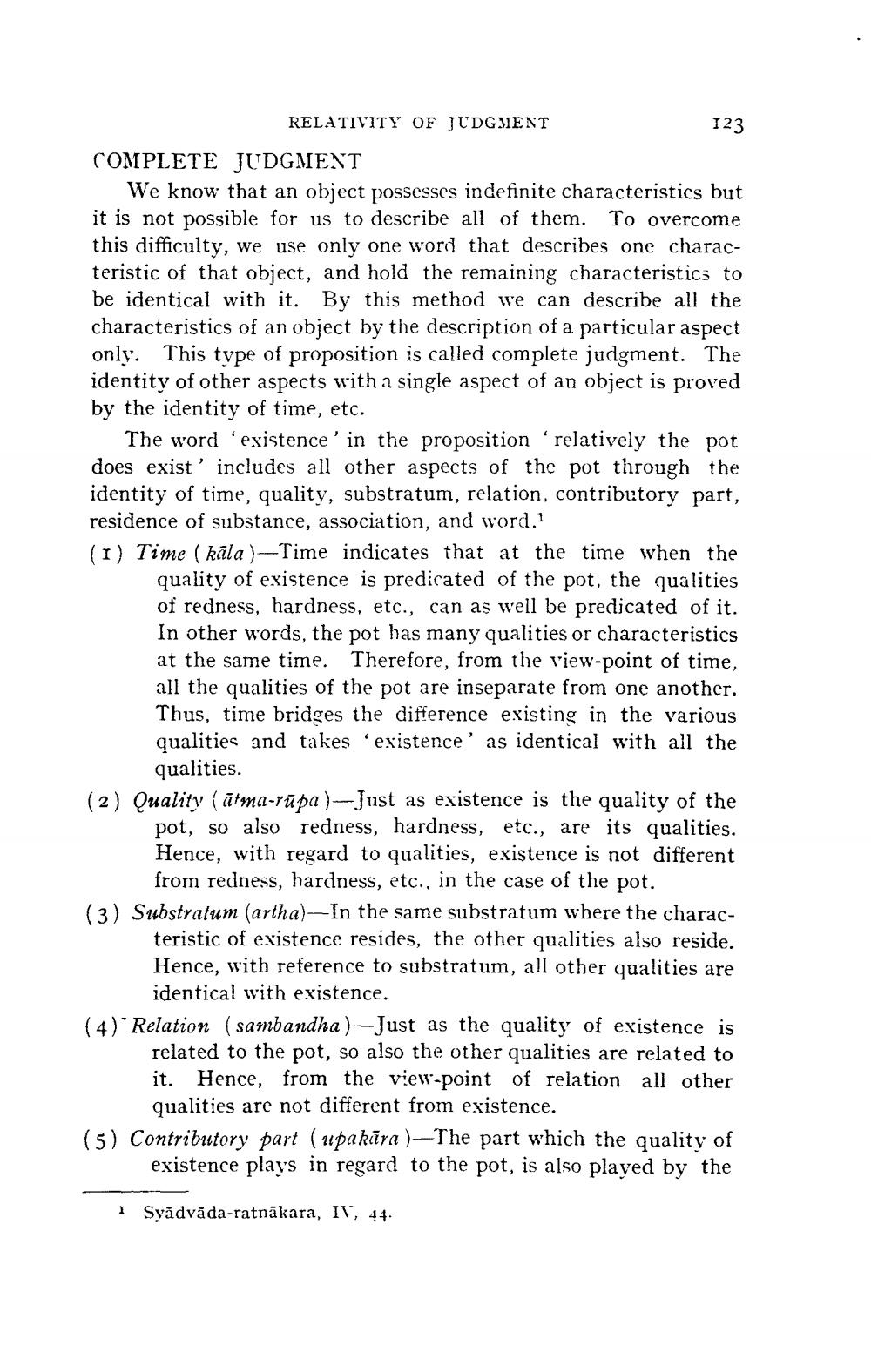________________
RELATIVITY OF JUDGMENT
123 COMPLETE JUDGMENT
We know that an object possesses indefinite characteristics but it is not possible for us to describe all of them. To overcome this difficulty, we use only one word that describes one characteristic of that object, and hold the remaining characteristics to be identical with it. By this method we can describe all the characteristics of an object by the description of a particular aspect only. This type of proposition is called complete judgment. The identity of other aspects with a single aspect of an object is proved by the identity of time, etc.
The word 'existence' in the proposition relatively the pot does exist’ includes all other aspects of the pot through the identity of time, quality, substratum, relation, contributory part, residence of substance, association, and word. (1) Time ( kāla)-Time indicates that at the time when the
quality of existence is predicated of the pot, the qualities of redness, hardness, etc., can as well be predicated of it. In other words, the pot has many qualities or characteristics at the same time. Therefore, from the view-point of time, all the qualities of the pot are inseparate from one another. Thus, time bridges the difference existing in the various qualities and takes 'existence as identical with all the
qualities. (2) Quality ( ātma-rūpa) - Just as existence is the quality of the
pot, so also redness, hardness, etc., are its qualities. Hence, with regard to qualities, existence is not different
from redness, hardness, etc., in the case of the pot. (3) Substratum (artha) - In the same substratum where the charac
teristic of existence resides, the other qualities also reside. Hence, with reference to substratum, all other qualities are
identical with existence. (4) Relation (sambandha)--Just as the quality of existence is
related to the pot, so also the other qualities are related to it. Hence, from the view point of relation all other
qualities are not different from existence. (5) Contributory part (upakīra )-The part which the quality of
existence plays in regard to the pot, is also played by the
1 Syâdvăda-ratnākara, IV, 44.




